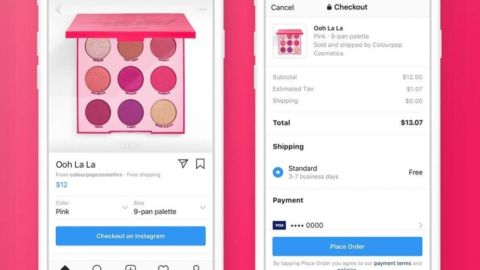Gen Z, the generation born between 1997 and 2015, has never known life before the World Wide Web. Yet across the globe, 98% make purchases in a physical store some or most of the time. Two-thirds of this cohort shop at brick-and-mortar retail (67%) most of the time, while 22% shop online most of the time. Mobile phones or smartphones are the most important device for three-quarters of the Gen Z population worldwide. While less than half (48%) have used a mobile app to shop, one-quarter have used mobile phones to pay for purchases.
These are among the findings of What Do Gen Z Shoppers Really Want?, a report based on a survey of 15,600 individuals between the ages of 13 and 21 in 16 countries, conducted by the IBM Institute for Business Value in collaboration with the National Retail Federation (NRF). This is the third of three reports NRF and IBM have produced based on a year-long study of the Gen Z consumer.
Time Savings And Choice Outweigh Discounts And Deals
The youngest generation of consumers wants great prices, with “access to the best deals” rated as important by 41% of respondents. However, Gen Zers place even greater value on their time, with 49% indicating thatthe “ability to find what I want quickly” is important and 36% expressing a desire for “speedy shopping and checkout.”
Having choices is also key with Gen Z, with 44% deeming the “ability to decide how and where to shop” as important and 30% wanting multiple ways to pay for their purchases.
Choice emerges as the number-one factor when Gen Zers decide where to shop, with 68% indicating that a wide selection of products is important or highly important. The proximity of the retail store (67%) and product availability (66%) are almost equally critical.
Again, price — defined as discounts, coupons and rewards — ranks among the most important factors in retailer selection, as indicated by 65% of respondents. More than half of young shoppers (56%) said having a fun in-store experience is important.
Mobile Is Used For Comparing And Sharing
Almost half (47%) of Gen Zers use their smartphones while shopping at brick-and-mortar locations. When they do, they deliberately compare that store and its merchandise to the other options they know they have. Respondents said they do the following “all or most of the time”:
- 53% check online to see if there is anything else they’d prefer to buy that is not available in the store where they are;
- 52% compare the price of a product they are considering with its price at other retailers; and
- 51% search the Web for a coupon, discount or promotion.
All or most of the time, Gen Zers will also use their mobile devices to share:
- 47% let family and friends know in which store they are shopping;
- 46% send messages and/or pictures to family and friends to ask for feedback on anything they might buy; and
- 25% connect with a brand or the retailer to contribute, collaborate or complain.
Whether in a store or elsewhere, most Gen Zers (55%) connect with brands on social media, and 39% of respondents said it was important or very important for brands to use social media to engage with them.
As they grow through their teen years, younger people develop brand affinities. While 36% of all survey respondents reported having a strong connection to a brand, among those aged 19 to 21, 46% had developed loyalty to one or more brands.
Personal Data Is A Double-Edged Sword
Having spent much of their lives engaging with social media, sharing personal information is more natural to Gen Z than to older generations. However, they also are aware of data breaches and other downsides to sharing, and they expect to benefit when they allow brands to access their information.
More than half (54%) of survey respondents want control over what information they share with brands and retailers, and 61% said they would feel comfortable sharing more personal information if they knew their data was being protected and stored securely.
Even though they are in their early years as consumers, 65% of Gen Zers indicated that rewards programs already are influencing where they shop, and 64% said it is important to have loyalty rewards personally tailored to them. For 59%, it is important that brands and retailers remember their birthdays.
Brands and retailers are increasingly using AI-powered messaging apps to interact directly with customers. When Gen Zers opt in to such communications, 55% rate relevant promotions as important or very important, while location-based alerts are important or very important to 45% of respondents.
Specific Steps To Engage Gen Z Consumers
The report set out a dozen recommendations for retailers, based on the data the survey yielded about the up-and-coming Gen Z generation around the globe. Here are some key concepts:
- Enable Gen Zers to check product availability and choices by providing access to accurate inventory information, and demonstrate the value they are receiving for their money through transparency of prices and deals.
- Interact with Gen Zers on a personal level through the channels they use to relate with their friends. Provide enhanced mobile functionality incorporating AI agents — such as chatbots or virtual assistants — that can dynamically learn from data captured in each interaction.
- Leverage voice and facial recognition, and AR and VR to knit together digitally integrated shopping experiences, allowing Gen Zers to engage whenever and wherever they want.
- Protect Gen Zers’ data, be transparent in its usage and give them control of it. Let them choose when, how and what they wish to share. Equip all channels of engagement, particularly mobile, with clearly defined and easily accessible policies on data collection and privacy.
- Give them the capabilities to satisfy their appetite for individualization. For example, provide 3D printing in-store to let them design and create one-of-a-kind items.
- Adopt an agile mindset so you can nimbly adjust course, based on data, research, evolving trends and changing priorities, to effectively and efficiently connect with Gen Zers.













